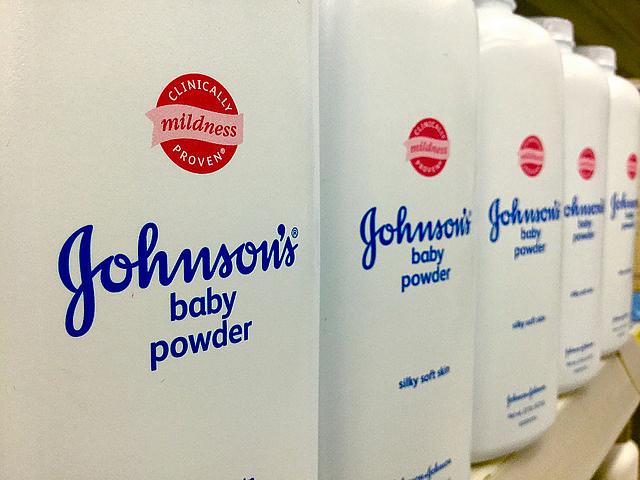Podcast will explore the link between Johnson & Johnson baby powder and cancer in women
December 2018 saw explosive reports (The New York Times, Reuters) that Johnson & Johnson knew for decades about concerns over asbestos in the talcum powder used to make its baby powder.
Stories of J&J’s negligence have been trickling out for decades and gaining traction as people began to sue the multinational company. Currently, there are more than 10,000 claims from people alleging that J&J’s talc products caused their cancer. Most of the cases have been bought by women with ovarian cancer and mesothelioma who had used baby powder (often in the genital area to stay “fresh and clean,” as J&J marketing suggests) for extended periods of time. In July 2018, Johnson & Johnson was ordered to pay $4.69 billion to 22 women who claimed that they developed ovarian cancer from baby powder. J&J maintains that there is no evidence to support these claims, however there are studies and research that have linked talc powder and cancer.
With all the controversy and media hype, what is the scientific basis for these claims? What can the research tell us about asbestos and cancer?
With the support of the 2019 California Fellowship, I will be investigating these questions for an episode of “Bodies,” a documentary podcast that I host and produce. Each episode of “Bodies” is one woman's journey to solve a mystery about her body. The series combines intimate, nuanced storytelling with health reporting to uncover the layers that affect women’s health, like racism, patriarchy and capitalism. “Bodies” is supported by KCRW in Santa Monica.
This episode will follow one woman’s journey with a cancer that she suspects was caused by J&J baby powder. In following a singular journey, “Bodies” makes space to explore how a health problem permeates every inch of a person’s life, like their relationships, families and careers.
For this episode, we are especially interested in sharing a story from the perspective of a black woman. When it comes to health, black women are disproportionately left out of medical research and media narratives. A 2016 study found that talc-related ovarian cancer may disproportionately affect African-American women. From a societal perspective, the story will also take a close look at the gendered and racialized marketing of beauty products. As Professor Omise'eke Natasha Tinsley writes: “If racism posits that blacks reek, and misogyny teaches us that vaginas are rank, how difficult does it become for black women to love the scent of our healthy vaginas? ... Johnson & Johnson [is] ready to profit from these myths of the excessive black vagina.”
One more question that I can’t stop thinking about: Given even the possible connection between talc and cancer, why would J&J continue using talc powder when there are perfectly good alternatives to baby powder, like cornstarch?
I’m looking forward to meeting and learning alongside fellow recipients of the 2019 California Fellowship and excited to pursue this story.


